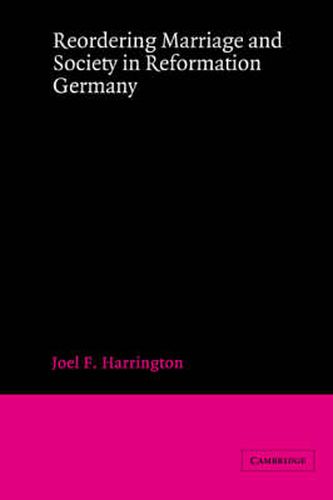Readings Newsletter
Become a Readings Member to make your shopping experience even easier.
Sign in or sign up for free!
You’re not far away from qualifying for FREE standard shipping within Australia
You’ve qualified for FREE standard shipping within Australia
The cart is loading…






This book examines the impact of the Protestant Reformation on both the ideal and practice of marriage in sixteenth-century Germany. Combining extensive archival work with a broad synthesis of scholarly research in legal, theological, and social history, it provides the most comprehensive evaluation to date of the Reformation’s impact on marriage. The author compares Protestant reforming goals and achievements to those of contemporary Catholics. All sixteenth-century campaigns to restore ‘traditional family values’, he argues, must be viewed in the context of more gradual social transformations in private morality, public authority, and familial relations. The apparent innovations of the reformers - including the abolition of clerical celibacy and introduction of divorce - fade in comparison to their much greater adherence to the theological, legal and social traditions shared with their Catholic ancestors and contemporaries.
$9.00 standard shipping within Australia
FREE standard shipping within Australia for orders over $100.00
Express & International shipping calculated at checkout
This book examines the impact of the Protestant Reformation on both the ideal and practice of marriage in sixteenth-century Germany. Combining extensive archival work with a broad synthesis of scholarly research in legal, theological, and social history, it provides the most comprehensive evaluation to date of the Reformation’s impact on marriage. The author compares Protestant reforming goals and achievements to those of contemporary Catholics. All sixteenth-century campaigns to restore ‘traditional family values’, he argues, must be viewed in the context of more gradual social transformations in private morality, public authority, and familial relations. The apparent innovations of the reformers - including the abolition of clerical celibacy and introduction of divorce - fade in comparison to their much greater adherence to the theological, legal and social traditions shared with their Catholic ancestors and contemporaries.